COMMENT | When Dr Mahathir Mohamad was asked how Anwar Ibrahim got his black eye in 1998, Mahathir said it was self-inflicted by Anwar.
Now if you asked me how was Pakatan Harapan's performance in the last one year,. I would say the problems are self-inflicted. Is there a remedy?
Of course, there is.
As long as Harapan starts acting like a ruling party with a majority mandate and moves on from BN type politics. Currently, PH seems like a minority government trying to cling to power and trying to make each coalition partner happy and ending up - one step forward, one step backwards.
Harapan came to power because people were fed up with BN. The young voters wanted to give Harapan a chance. People were excited about change. When change didn’t come instantly, the ruling party, rather than embracing the mood of the day, ended up blaming the previous government for everything and soon their excuses became stale. These wounds were not inflicted, but self-inflicted.
May 9 was a critical change
Please don’t get me wrong. The May 9 change was beautiful and long overdue. The fact that the change of government happened without any bloodbath is a great victory by itself and a great win for democracy.
For me two most important institutional change for which we can see results have been the MACC and the Election Commission. Both have seemed to play their role impartially and will continue to gain public confidence.
Another significant change we can see is the liberation of the media, especially electronic and print media. But their role is not as significant as a game changer because even before this, online social media did the real work in opening up the space before election.
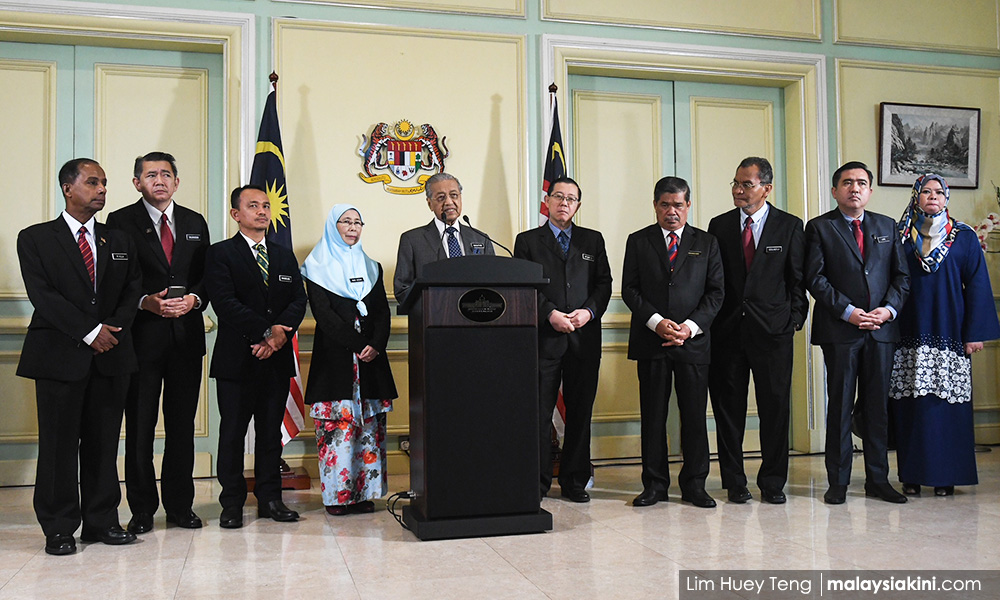
Mahathir was sober when he gave his cabinet 5 points out of 10. I wouldn’t mind giving them a slightly higher score. Nevertheless, most Malaysian seem to want to give the PM 10 points and his cabinet negative points. One can single out Anthony Loke as one of best ministers for coming out with new ideas, marketing it and not going overboard in attacking his opponents.
Pakatan is not inexperienced
The biggest setback is that Harapan does not seem to get its act together. To say they are all new and inexperienced is not true.
For the past 10 years, Harapan has been controlling Penang and Selangor. People like Azmin Ali, Muhyiddin, Saifuddin Abdullah, Lim Guan Eng Mukzir Mahathir are not new. Having Mahathir and Anwar Ibrahim is a great advantage for Harapan – both previously Prime Minister and Deputy Prime Minister.
But it seems Harapan cannot click as a ruling party because of serious internal problems within the coalition partners, power struggle, style of work and major disagreement on all major issues.
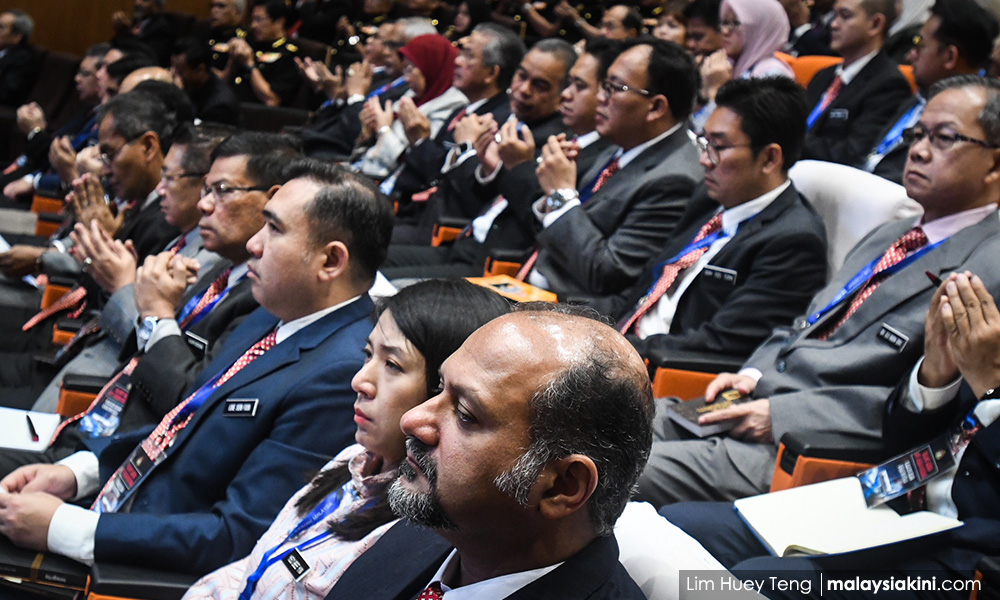
There are five groups which are unhappy with the government. The attacks on the coalition come from five groups - the ruling party, right-wing Islam on issues of race and religion, the Rulers, the common people and civil society groups.
BN attacks
It looked initially like BN was completely wiped out, with many people jumping ship, etc., but in the last few months we have seen that BN has consolidated. PH's strategy of attacking BN and its leaders has lost its meaning after some time, and gone overboard. If one is to follow Parliament debates, the opposition seems to be raising some critical issues, while Harapan MPs don’t show enough fighting spirit in taking them on.
When Umno leaders still have a large following among the Malay community and rural folks, one has to be measured when attacking them. Many Umno leaders have been taken to court, and Harapan leaders do not need to continue mocking them because voting trends will show that most rural Malay population voted for Umno and PAS.
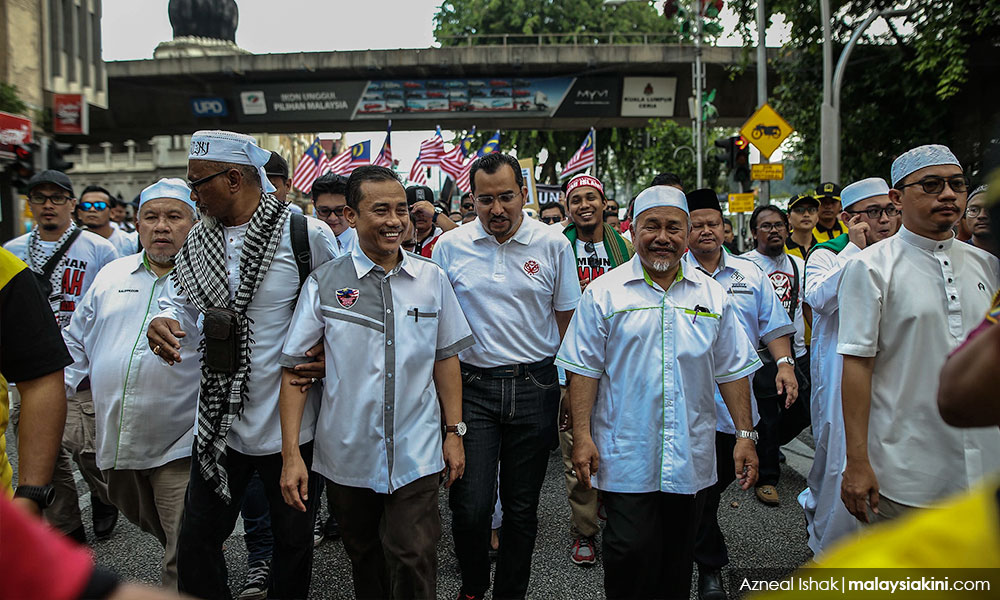
The best way to win them over is not ridiculing them, but to do real grassroots work in the rural Malay heartland and Felda.
Attacks from Right-wing Islam on issues or race and religion
This is where PH has been losing every battle from ICERD to the Rome Statute. Who told Harapan to table these two things when nobody asked for it and neither was in their manifest?
When they were under attack on the ICERD – in Parliament nobody could defend Harapan ministers. It was a pity because when Minister Waythamoorthy spoke about it, nobody in Harapan backed him. DAP members won’t talk about the issue, while Amanah members will try to play safe not to lose Muslim support. PKR members are split among the pro-Anwar camp and the pro-Azmin camp.
Almost all Muslim countries in the world have endorsed ICERD. Therefore, it should have a piece of cake to implement it or counter the arguments, but Harapan retreated. On the Rome Statute, nobody knew it was an issue and the issue became more popular after Mahathir withdrew from it.
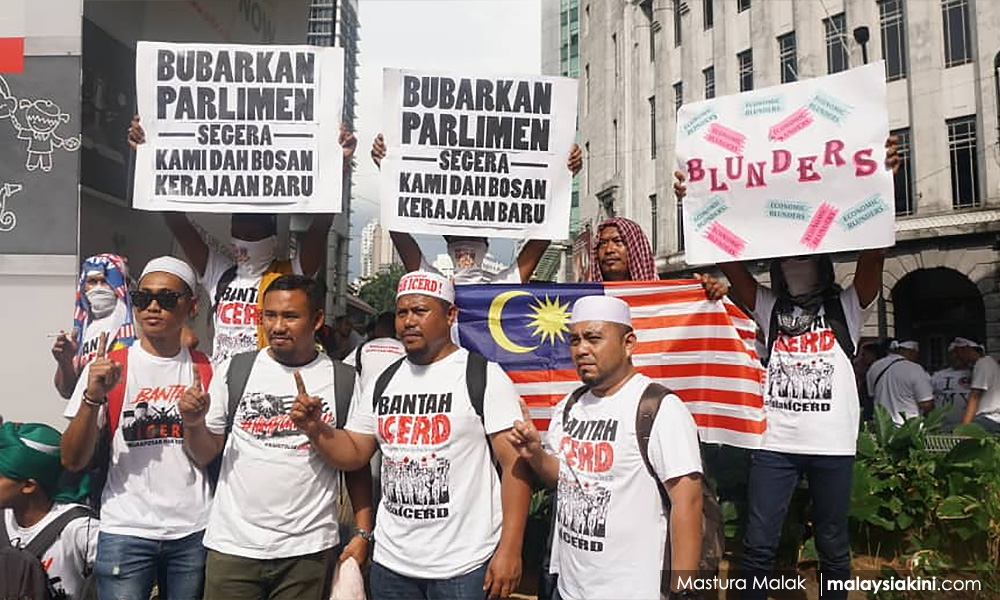
Some think these are deliberate moves by Mahathir to show DAP that these are sensitive issues and only Bersatu can handle it.
However you look at it, in both these issues, Harapan was not a united voice. They hardly prepared or educated their own MPs or their own members on these issues before tabling it. Both the defeat on ICERD and Rome Statute are major defeats which could have been avoided. This is yet another self-inflicted injury.
Similarly on the matriculation issue, PH once again showed they are not ready to dump race-based policies for needs-based policies. Once again a proper explanation could have saved Harapan, but when it was announced there were disputes between Haparan Indians and Bersatu.
Another example is when the Seafield temple issue erupted; we again saw how PH showed that they were not ready to handle the issue holistically. Government leaders were at odds over how Adib died and little was done to level off everybody on actual facts and real issues.
Disputes with royalty
This seems like Mahathir is fighting a lone battle against the royalty and everybody else conveniently stays out. What will happen post-Mahathir? It seems to me that Mahathir had more support when he handled the first constitutional crisis when he was an Umno PM compared to now. This time it seems like he is on a lone fight and based on his age, it seems time might not be on his side.
Once again the failure of Malay leadership, especially from PKR and Amanah, to address these issues seems subdued. During the pre-independence times, we had strong left-wing Malay nationalist parties who were progressive and very pro-people. Today PKR and Amanah, who are supposed to be more progressive than Umno and PAS, seem to show an attitude that on this issue, they are the same.
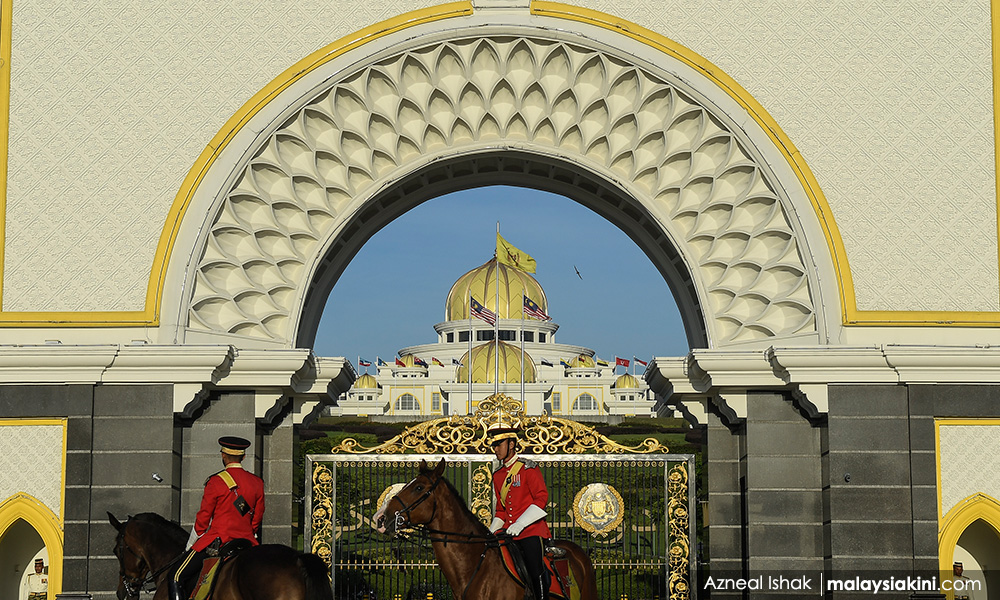
Common people are unhappy
There were two large groups of simple people who were very excited to see the change in government. One was those who wanted BN punished for swindling all our money, whereas the second was those who were hoping that basic issues like employment, cost of living, will be resolved when PH came to power.
When PH came to power, they implemented some things very fast like banning cigarettes in the restaurants, speed traps in highways, etc., but on major issues like minimum wage, subsidy for smallholders, etc., these were not happening.
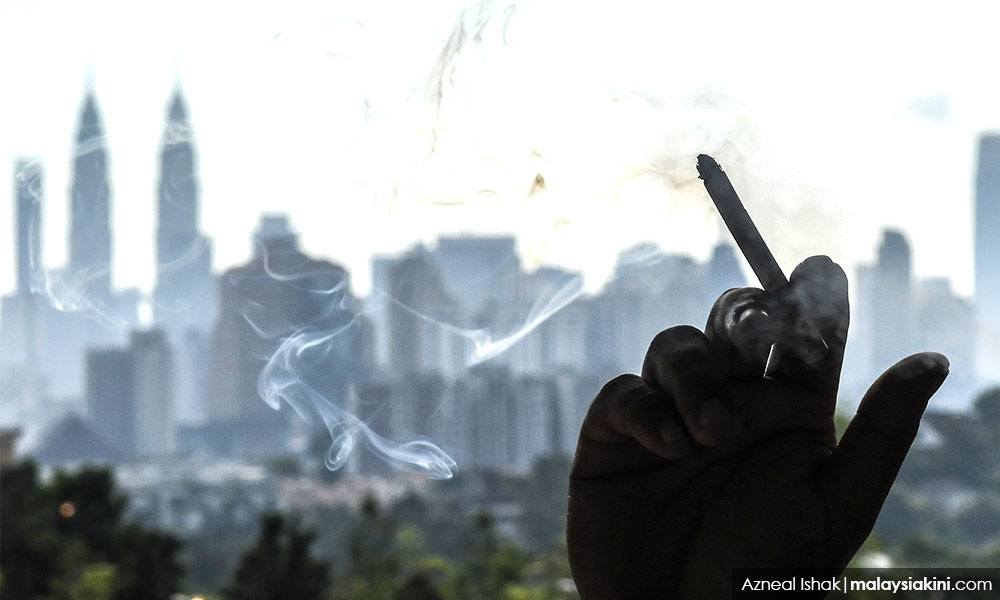
The reason given was that Najib and gang have stolen all the money. But PH did not do much austerity saving in their own governmen,t except for taking a 10 percent salary cut. Harapan leaders continue to enjoy perks, travel in business class and use luxury cars to run their daily business. They don’t seem to share the burden felt by the majority of the people.
How can the rakyat cope when wages do not go up, and the price of goods go up, while the income gap continues to grow? There is hardly much empathy shown to the poor, except that they must sacrifice.
I think there is a growing dissatisfaction between the NGOs, civil society and Harapan. It seems like both took each other for granted. Harapan thought the civil society iwa on their side and therefore didn’t expect them to be offensive, whereas the civic society thought that Harapan would do serious reforms.
Here there seem to be some serious issues because there are major differences among coalition partners on many issues like the death sentence, IPCMC, SOSMA, Sedition laws, PTPTN and others.
There are issues like appointments to GLC positions. There are issues like institutional recommendations made which are not made public. So when there are no reforms on these issues, it will appear that we are heading towards a BN 2.0.
Four things Harapan needs to do in the coming year
Give a date once and for all for the transition plan from Mahathir to Anwar.
If this is not done, the next one year will be filled with politicking, lobbying and conspiracy theories. Harapan needs to move on. This has been the central question creating disunity and unnecessary speculation before the election, as well as after the election. PH can do away with this distraction.
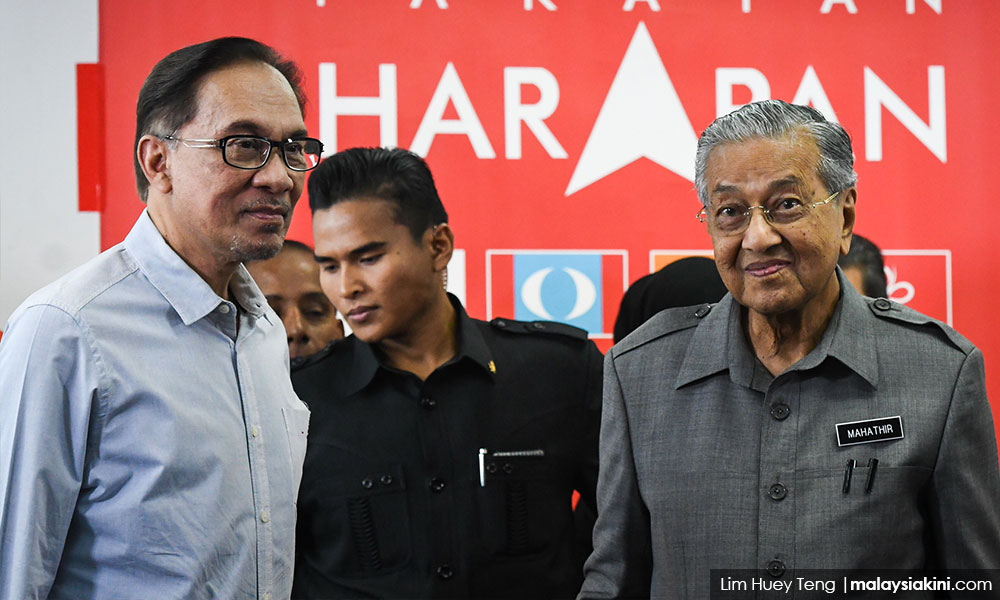
Secondly, form a special committee and set clear timelines and datelines on when and how they want to implement their manifesto
Recognise the thirst of the rakyat for the promises of the manifesto. They will continue being accused of U-turns and on the defensive if they don't act.
Thirdly, Harapan needs to derive a method of creating, educating and popularising all the coalition partners, MPs and their members so that they can implement policies without having a tail in-between their legs. Its members needs to be confident, well informed and play as a team if they want to take on the Umno-PAS coalition.
Finally, keep talking to the people and consult them before making changes.
The best way to have this is to encourage elections at all levels- residents, kampongs, PBTs, and after that proper consultation with the grassroots on every issues.
Similarly, the civil society and NGOs were strong allies of the PH before. Now it seems PH is doing more lip service than actual consultation. Only through genuine partnership can genuine change take place.
These are self-inflicted problems. Harapan can re-examine their base and win back the support. But if Harapan wants to win over BN in the BN fortress in race and religion, they will be doomed.
Some called May 9 the birth of a new Malaysia and new hope. This can only come about when there is a real paradigm shift from race and religious-based politics to needs and fair based politics.
S ARUTCHELVAN is a central committee member of Parti Sosialis Malaysia (PSM).
The views expressed here are those of the author/contributor and do not necessarily represent the views of Malaysiakini.

